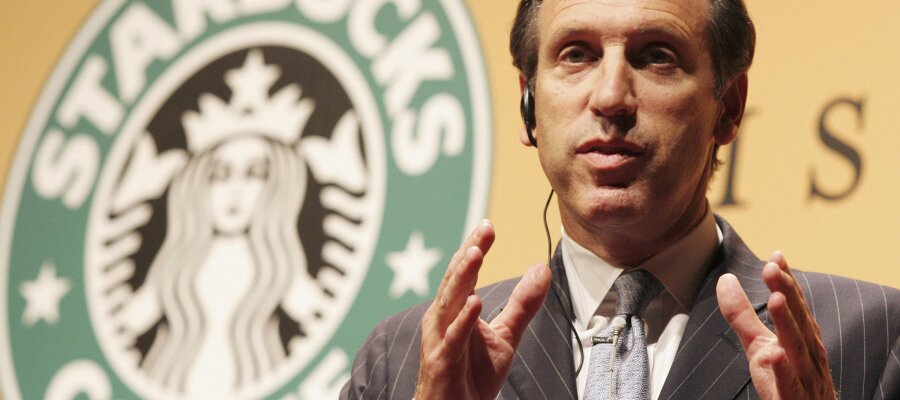The next time you order a trenta cup of Espresso Macchiato, think about this: Is Howard Schultz the George Washington of Conscious Consumerism?
Schultz, of course, is the chairman and CEO of Starbucks. He is probably as well known for helping set the company’s social agenda as he is for leading its remarkable growth. In the wake of the recent tension and unrest following grand juries’ decisions not to indict police officers in Ferguson, Mo., and New York City, Schultz issued a letter to the company’s 135,000 employees urging an open dialogue about the racial issues that still help define our society:
I’ve always believed that core to our success has been our commitment to achieve the balance between our social conscience and responsible commerce. This is one of those times. Starbucks is far from perfect, and we do not claim to have solutions to our country’s complicated social issues. However, doing what is right for society and doing what is right for business cannot be mutually exclusive endeavors. While it is always safer to stand on the sidelines, that is not leadership. Today more than ever companies such as Starbucks must use their platforms and resources to create opportunities for their people, as well as for the communities they serve.”
Schultz has proof that Conscious Consumerism is good for business. TIME spoke with Schultz this week, and Rana Foroohar filed this report:
The minute-by-minute data that Starbucks gets on consumer spending is perhaps the most sensitive indicator of U.S. consumer confidence around, so it was startling to hear from Schultz that coffee sales took a hit during the riots in Ferguson, which is something that concerns him not only from the point of view of the economy and U.S. consumers — whom he calls “fragile” — but from a political stability point of view as well. “I don’t want to go into specifics,” Schultz told me the day after riots in New York City, following the announcement that a grand jury would not indict a police officer in the chokehold-related death of Eric Garner, “but I can tell you that the volatile situation in Ferguson and the situation in New York had an immediate negative effect on consumer behavior across the country.’”
By being an activist company, Starbucks is letting consumers see what the company stands for, and giving the consumer more to choose from than what they see behind the counter.

